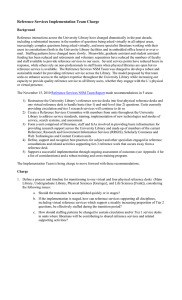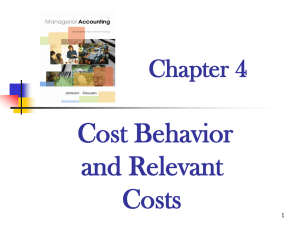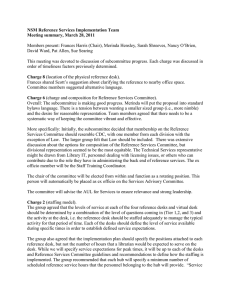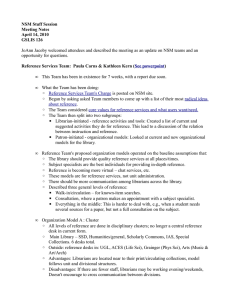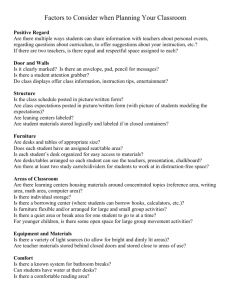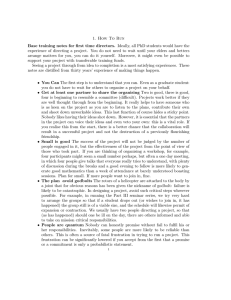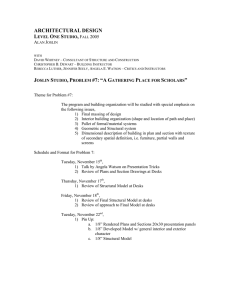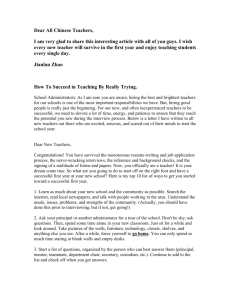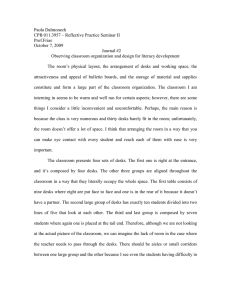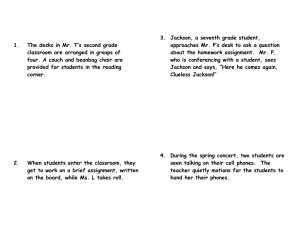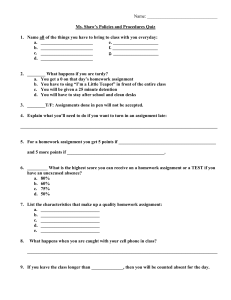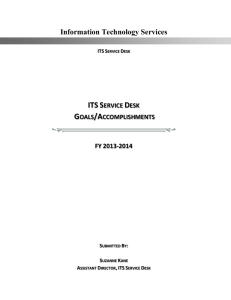Reference NSM Team interim report NSM Stuff Session August 1, 2010
advertisement
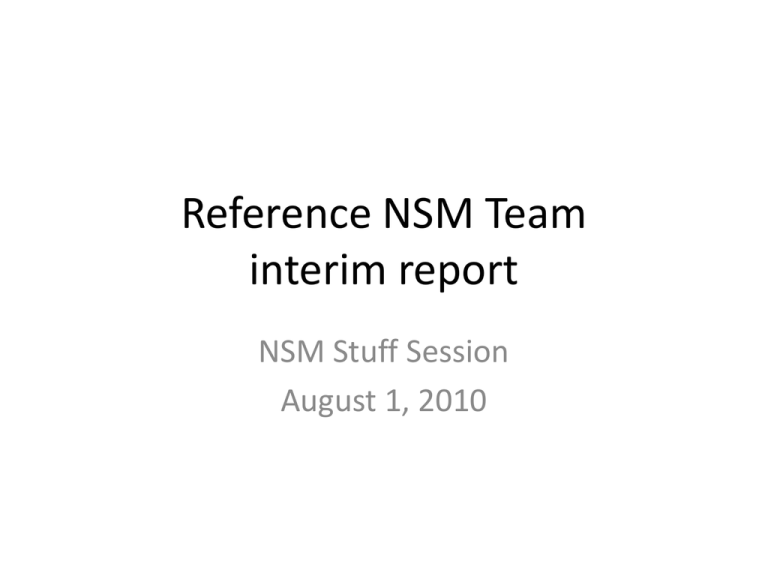
Reference NSM Team interim report NSM Stuff Session August 1, 2010 Five recommendations 1. 2. 3. 4. 5. Consolidated reference desks Coordinator of Reference Services Reference Services Committee Creation of a Research Support Services unit Expectations for subject consultations Tiers of service • Tier 1: Questions about: directions, library policies, basic known-item searching (catalog and electronic journals) • Tier 2 : Basic to Intermediate research assistance: locating articles on a topic, selecting a database, introduction to library research, advanced item searching • Tier 3: In-depth research consultations: students starting dissertation research, primary sources, comprehensive searching and use of specialized sources 1. Structure of reference services • 4 reference desks + 1 virtual service point – Main – ACES – Grainger – Undergraduate – Virtual services (IM, email, phone) Advantages • Streamline entry for reference assistance • Provide longer hours of service for reference assistance • Create a reference team environment that fosters greater communication and crosstraining • Address decrease in number of librarians and GAs while maintaining quality and availability of assistance Considerations and questions • Not all desks are included at this point (Music, Art and Architecture, RBML, Archives) • How many hours a week will each librarian work at one of the desks? • A referral policy and procedures will be written to facilitate referrals at all levels and between service points • What types of training are needed? 2. Coordinator of Reference Services • This position is recommended at full time to: – Provide leadership for reference services across the Library – Chair a Reference Services Committee – Oversee the planning, operations, and assessment of the Main Research Desk, the Virtual Desk, and the Undergraduate Research Desk – Work at multiple reference service points 3. Reference Services Committee • This group will be comprised of individuals with interest and involvement in providing reference • Concerns of the committees will be: – Service standards – Training – New technologies and models of service – Assessment tools and techniques 4. Creation of a Research Support unit • Research Support Services unit would bring together: – Scholarly Commons – Most of Reference, Research, and Government Information Services – Web Technologies and Content Creation – Coordinator of Reference Services – This group might change (as do so many things) over time 5. Subject/Research responsibilities • Actively serve as liaison to departments including holding office hours in departmental spaces, where possible • Work closely with faculty on departmental activities such as curricula and grants • Collaborate with other librarians on interdisciplinary questions • Connect scholars with other library services such as Scholarly Communications and data management
